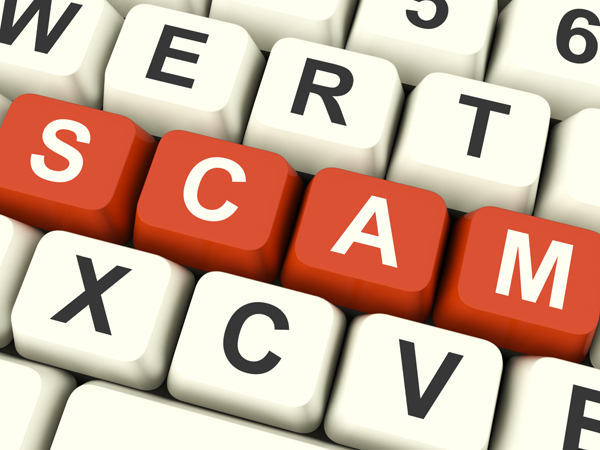Proofreaders beware: the overpayment scam is still out there
4 We wrote an article in 2013 about an email scam that was doing the rounds at the time. It was targeting proofreaders, although apparently the general idea for the scam had been around for a while before that and has previously preyed upon other types of freelancers, too. You can read our previous article here.
We wrote an article in 2013 about an email scam that was doing the rounds at the time. It was targeting proofreaders, although apparently the general idea for the scam had been around for a while before that and has previously preyed upon other types of freelancers, too. You can read our previous article here.
Worryingly, I have now been informed by one of our advertisers (who would prefer to remain anonymous, so I’ll refer to her as ‘Nicola’) that she has been targeted by the same malicious trick TWICE in the past few weeks.
I should point out that the scammer(s) contacted Nicola by email rather than via her Find a Proofreader profile, so we don’t know whether they found her via our directory or some other channel. The important issue is that any proofreader with any form of web presence is vulnerable, so if you’re not already familiar with the overpayment scam, you need to read on!
Nicola was targeted twice in a fortnight, and probably by the same person (one claiming to be a female and the second a male, with different email addresses and different home countries). The first sent her a document and said “she” would post a cheque in advance, but as Nicola didn’t have time to take the job on, she recommended her friend, another proofreader based in the same area.
The scammer then wrote to Nicola’s friend, saying she had accidentally sent a cheque for €2,000 rather than the €200 quoted, and requested the return of the balance into her bank account. Her friend was suspicious at this point and checked the piece (which she hadn’t actually worked on at the time), and it turned out to be taken directly from the UNICEF website. She replied to the scammer with a link to the piece and that was the end of it. Not surprisingly, the cheque never arrived!
Nicola had a similar experience last week, but unfortunately she spent four hours on the job before realising that there was something funny about the four documents, on management: they were all in different styles. Nicola googled the pieces and discovered that, again, they all came from the web. She then went back to her original email from the scammer and saw that he had asked for her phone number and postal address so that he could send Nicola a cheque in advance.
The fact that this proofreader was targeted twice in a matter of weeks suggests that the scam is rife once again, and I sincerely hope that none of our other advertisers have been affected by it. The crime relies on the spammer sending the proofreader a cheque, so probably the simplest solution is to not accept cheque payments at all – or if you do, don’t commence the proofreading until you know that the customer is legit. If they send a cheque for more money than intended, you know it’s a scam!
Please reply with a comment below if you have been affected by this issue, or if you have any information that you think we need to add.


Hi Nick,
I got one of these recently and, remembering the scam of 2013, I sent a polite reply saying that I only accept payment by direct bank transfer (which is largely true). I never heard back!
Lesley
Heckuva good job. I sure aprpaciete it.
Cheques are on the way out. I don’t write them, and I don’t accept them. This is another excellent reason to support my position! Thanks for the heads up!
Tekla
Wow! Thanks for the information. I had no idea.
–Jenn
h2oproof.net